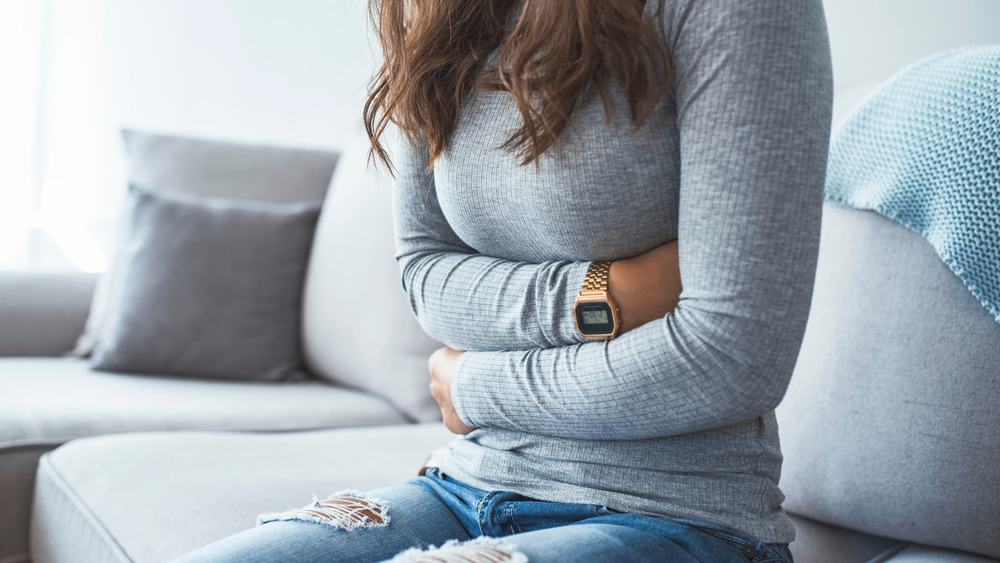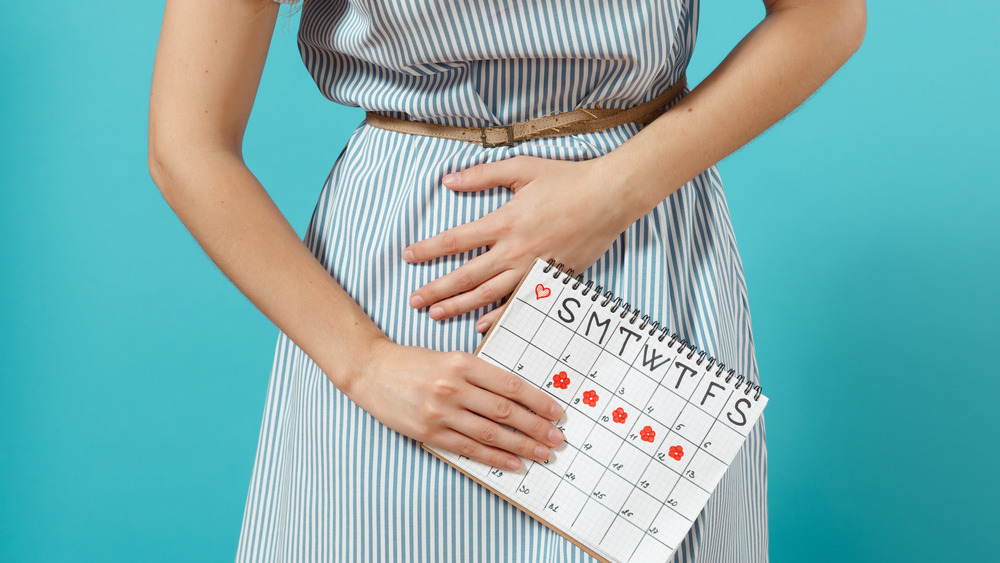What It Really Means When Your Period Ends Early
There are no ifs ands or butts about it: periods are no fun. The headaches, back aches, cramps, mood changes, fatigue, and other symptoms are never welcome visitors. So most of us would be relieved if rather than a week of misery, our periods suddenly ended early. But if it ends too early, it could worry us that something is wrong, and it's hard to celebrate early freedom when you're concerned your respite could actually be a red flag.
A normal period generally lasts 3-7 days, and depending on your family history, you might be quite accustomed to shorter or longer periods and shorter or longer cycles. Even a two-day period can be considered normal if it's what your body seems to regularly do. But if your period stops short, doesn't seem to be normal volume, or it if causes unusual pain when stopping, it might be a good idea to see a doctor to rule out things like pregnancy or potential illnesses (via Medical News Today).
When to see a doctor about a short period
The first thing your doctor is likely to check on in the event of a very short period is possible pregnancy. When a fertilized egg attaches itself to the uterine lining, implantation bleeding can occur. This bleeding is lighter than a regular period, generally lasts one to two days, and is usually light pink to dark brown in color. Implantation bleeding generally happens about 10 to 14 days after conception, and though not all pregnant women will experience it, bleeding that fits this description is often considered a possible pregnancy symptom by medical professionals (via Healthline).
Another potential cause of very-short periods is perimenopause, which women can begin to experience anywhere from their thirties to fifties. Due to hormonal changes before menopause, people may notice their periods changed. If your shortened or less frequent cycle is accompanied by hot flashes, difficulty sleeping, night sweats, or vaginal dryness, consider talking to your doctor about this possibility (via Medical News Today).
An anovulatory cycle, or when the ovaries fail to release an egg, can also cause short spotting or irregularity. If your short cycle comes with chills, fever, pelvic pain, bowel dysfunction, bladder dysfunction or abnormal vaginal discharge, this is a possibility. And another hormonal issue that can result in super-short or irregular periods is polycystic ovarian syndrome, which brings with irregular periods, infertility, excess hair growth, obesity, oily skin and acne, and ovarian cysts.

